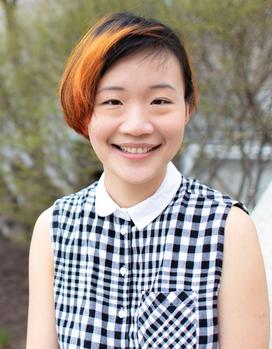A Princeton Workshop Inspired Literary Translator Jennifer Shyue ’17
‘I’m really interested in helping to broaden the conversation on Asian American literature that’s happening in the U.S.,’ Shyue says

Jennifer Shyue ’17 says the art of literary translation is “like a puzzle in ways that are really fun.” She got hooked when, as a sophomore at Princeton, she took a literary translation workshop taught by Natasha Wimmer, the translator of Chilean writer Roberto Bolaño’s celebrated novels The Savage Detectives and 2666.
One of the class assignments involved selecting a Spanish language work of fiction to translate. “I had grown up bilingual in Mandarin and English and had been exposed to translation as a pedagogical tool in high school through Latin classes, but had never really thought about translation,” Shyue says. “That was a really eye-opening experience.”
She had been interested in Latin American literature since living in Peru for nine months with Princeton’s Bridge Year Program, which sends incoming students on gap year experiences before they matriculate. By the time she came into Wimmer’s workshop, she was already curious about translating Peruvian writers, and particularly writers in Latin America who were a product of the Asian diaspora.
“She was really good at making connections and uncovering writers who were interesting and hadn’t been translated before, which is a big part of the translator’s job,” Wimmer says.
After Princeton, Shyue earned an MFA in literary translation at the University of Iowa and then received a Fulbright grant to spend another year in Peru, from 2019 to 2020. The experience was cut short by the COVID-19 pandemic.
Since then, Shyue has published her translations in major journals such as McSweeney’s and New England Review, and in four books including The Enlightenment of Katzuo Nakamatsu by Augusto Higa Oshiro and Motherland by Paula Ramón, co-translated with Julia Sanches.
Perhaps Shyue’s closest collaboration was with Julia Wong Kcomt, a poet Shyue met while on her Fulbright. A prolific figure in Peruvian literature, Kcomt hailed from Tusán (Chinese Peruvian) heritage and founded an influential poetry festival in her hometown of Chepén.
“A wonderful thing about [Kcomt] is that she very much believed in translation as its own art,” Shyue says. “I’ve been very lucky, in general [that] the writers I work with very much respect my choices as a translator.”
Kcomt died of cancer in March 2024. Shyue’s translation of Kcomt’s 2008 poetry collection, A Blind Salmon(Un Salmón Ciego), was published in July in a joint Spanish and English edition. A review from the Poetry Foundation praised her translation: “Shyue is, in fact, more than equal to the task of bringing the various elements of Kcomt’s work together, while marking these poems with her own imprint.”
Shyue’s career came full circle in April 2024 when she visited Wimmer’s translation class, the same one that set her on the path to translating Latin American writers.
“As a translator, I’m really interested in helping to broaden the conversation on Asian American literature that’s happening in the U.S., which is often very U.S.- and Canada-centric,” Shyue says, explaining that many Latin American countries experienced similar histories of Asian immigration. “I hope to help open up the conversation and make it easier for readers of Asian American literature to read continentally, even if they don’t read Spanish.”











No responses yet